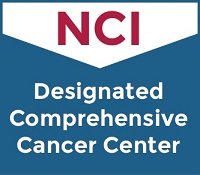New Associate Director of Community Outreach and Engagement at the University of Maryland Greenebaum Comprehensive Cancer Center
Contact:
Karen Warmkessel:

Cheryl L. Knott, PhD, Has 20+ Years' Experience in Community-Based Cancer Control Research
The University of Maryland Marlene and Stewart Greenebaum Comprehensive Cancer Center (UMGCCC) announces the appointment of Cheryl L. Knott, PhD, as associate director of community outreach and engagement.
Dr. Knott has more than 20 years' experience in community-based cancer control research, with a strong focus on eliminating cancer disparities. Also, she serves as co-director of UMGCCC's Cancer Control and Population Sciences Program, a position she has held for five years.
In her new role, Dr. Knott will steer the cancer center's efforts to work with communities throughout Maryland on cancer education and screening initiatives to help prevent cancer or detect it at an early stage when it is most treatable. Also, she aims to strengthen community outreach within the cancer center's research programs. As one of only 51 National Cancer Institute (NCI)-designated comprehensive cancer centers in the United States, UMGCCC provides patients access to cutting-edge therapies as part of clinical trials well before the treatments are commercially available.
"We are most fortunate to have a seasoned public health professional with Dr. Knott's years of experience in community-engaged research lead our community outreach efforts," says Kevin J. Cullen, MD, the Marlene and Stewart Greenebaum Distinguished Professor of Oncology at the University of Maryland School of Medicine (UMSOM) and the director of UMGCCC.
"We are committed to not only providing the most effective therapies to patients who come to our cancer center but also reaching out beyond our walls to help reduce the tremendous cancer burden affecting communities in our city and state," Dr. Cullen says. "We will continue to work to eliminate disparities in access to care, especially among minority populations."
Dr. Knott is a professor in the Department of Behavioral and Community Health at the University of Maryland School of Public Health with a secondary appointment in the Department of Epidemiology and Public Health at UMSOM.
Her health disparities research involves community-based cancer communication studies and the role of culture in cancer control behaviors. She is founding Director of the Community Health Awareness, Messages, and Prevention (CHAMP) research lab at the University of Maryland School of Public Health, which focuses on cancer-related disparities, particularly those impacting African Americans. Using a community-based participatory research approach, CHAMP works with community partners largely in faith-based communities to increase early detection of breast, prostate and colorectal cancers through screening.
A key community initiative of the Greenebaum Comprehensive Cancer Center is the Baltimore City Cancer Program (BCCP), which offers free breast, cervical and colorectal screening to eligible uninsured or underinsured city residents. Funded through Maryland's Cigarette Restitution Fund Program and Komen Maryland, the program was created in 2001 to help eliminate cancer deaths in Baltimore City through early detection, diagnosis, treatment and education.
About the University of Maryland Marlene and Stewart Greenebaum Comprehensive Cancer Center
The University of Maryland Marlene and Stewart Greenebaum Comprehensive Cancer Center is a National Cancer Institute-designated Comprehensive Cancer Center in Baltimore. The center is a joint entity of the University of Maryland Medical Center and University of Maryland School of Medicine. It offers a multidisciplinary approach to treating all types of cancer and has an active cancer research program. It is ranked among the top 20 cancer programs in the nation by U.S. News & World Report. umgccc.org
About the University of Maryland School of Medicine
Commemorating its 210th Anniversary, the University of Maryland School of Medicine was chartered in 1807 as the first public medical school in the United States. It continues today as one of the fastest growing, top-tier biomedical research enterprises in the world -- with 43 academic departments, centers, institutes, and programs; and a faculty of more than 3,000 physicians, scientists, and allied health professionals, including members of the National Academy of Sciences, and a distinguished recipient of the Albert E. Lasker Award in Medical Research.
With an operating budget of more than $1 billion, the School of Medicine works closely in partnership with the University of Maryland Medical Center and Medical System to provide research-intensive, academic and clinically based care for more than 1.2 million patients each year. The School has over 2,500 students, residents, and fellows, and nearly $450 million in extramural funding, with more than half of its academic departments ranked in the top 20 among all public medical schools in the nation in research funding. As one of the seven professional schools that make up the University of Maryland, Baltimore campus, the School of Medicine has a total workforce of nearly 7,000 individuals. The combined School and Medical System ("University of Maryland Medicine") has a total budget of $5 billion and an economic impact of nearly $15 billion on the state and local community.
The School of Medicine faculty, which ranks as the 8th-highest public medical school in research productivity, is an innovator in translational medicine with 600 active patents and 24 start-up companies. The School works locally, nationally, and globally, with research and treatment facilities in 36 countries around the world. Visit medschool.umaryland.edu/
####


